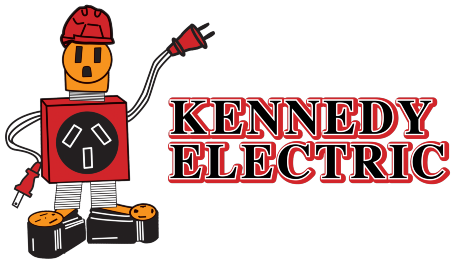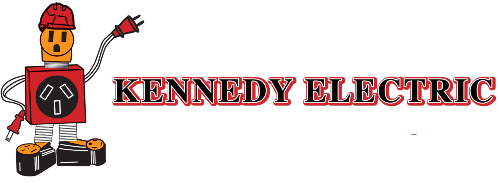Electrical Safety Tips from Professional Electricians
Always remember to switch off the power at the breaker box before starting any electrical work and use a voltage tester to verify that the area is free from live electricity.
Electrical safety is not something to take lightly, whether in a home or workplace. A professional electrician understands how quickly minor issues can turn into dangerous situations when electricity is handled without the proper knowledge, tools, or precautions. Following the right practices is essential for preventing shocks, fires, and equipment damage. Residential electrical safety becomes far more manageable when people know what to look for and when to contact professional electricians instead of attempting risky fixes.
Always remember to switch off the power at the breaker box before beginning any electrical work and use a voltage tester to verify that the area is free from live electricity. Even the smallest repair can lead to significant hazards if approached without proper awareness. The safest strategy is to rely on professional electrician teams who are trained to manage every level of electrical need.
Understanding The Basics Of Electrical Safety
Before applying any electrical safety tips, it helps to understand why the right precautions matter. Electricity is an essential part of daily life, but even little mistakes can lead to serious harm.
Some key points that form the foundation of electrician safety include:
Electrical systems can cause injury or start fires when handled incorrectly
Thousands of accidents take place each year due to negligence or overlooked hazards
Awareness and proper precautions reduce risks significantly in homes and workplaces
A professional electrician emphasizes safety not just during repairs or installations, but also in everyday use of outlets, appliances, cords, and lighting.
Common Electrical Hazards
Recognizing warning signs is the beginning step in preventing damage or injury. Some of the most common hazards seen by professional electricians include:
Overloaded power strips or outlets
Damaged cords with exposed wiring
Moisture near electrical equipment or outlets
Poor grounding or worn insulation
These issues are often ignored until a problem occurs. Regular inspections and maintenance by professional electricians can eliminate most risks before they escalate.
General Electrical Safety Tips
Creating a safe environment depends on consistent habits and responsible use of equipment. The following practices are among the most important electrical safety tips recommended by experts.
Keep Electricity Away From Water
Moisture and electricity create hazardous conditions. Avoid touching switches, plugs, or appliances with wet hands. Any outlets installed near sinks, bathtubs, or outdoor moisture exposure should be GFCI-protected to prevent shock. Standing water near extension cords or equipment can be a serious hazard and requires immediate attention from a professional electrician.
Avoid Overloading Outlets
Plugging multiple high-wattage devices into one outlet can cause overheating, melted wiring, or fires. Space appliances across available circuits and unplug devices when not in use. Extension cords and power strips should be temporary solutions, not permanent replacements for proper wiring.
Regularly Inspect Cords And Plugs
Frayed cords, damaged plugs, and cracked insulation are common causes of electrical shock and fire. Replace worn or unsafe cords immediately rather than trying to repair them with tape. If damage is found on built-in appliance cords, a professional electrician should handle the repair or replacement.
Use The Correct Wattage For Light Fixtures
Using bulbs with wattage higher than what a fixture is rated for can lead to overheating, scorched sockets, or melting. Follow the manufacturer's guidelines or consult a professional electrician when unsure about lighting compatibility.
Safety Tips For Parents And Caregivers
Electrical safety becomes even more critical in homes with children. Curiosity and a lack of awareness can make everyday items hazardous.
Use Outlet Covers
Childproof outlet covers help block access to open sockets and reduce the risk of objects being inserted. These covers are easy to install and offer effective protection.
Store Electrical Devices Safely
Items like curling irons, hairdryers, kitchen appliances, and space heaters should be stored out of reach, especially when they remain plugged in. Keeping cords secured and away from small hands protects children and reduces the chance of accidents.
Workplace Electrical Safety
In a commercial or industrial environment, electrical safety requires more than individual caution. A safe workspace depends on consistent procedures and oversight.
Follow Proper Lockout/Tagout Procedures
Before servicing machinery or electrical equipment, it must be shut down at the power source and clearly tagged to prevent reactivation. These protocols help protect workers from accidental start-ups and electrical discharge.
Conduct Regular Safety Audits
Routine assessments help identify loose connections, outdated wiring, tripped breakers, or areas at risk of overload. Addressing these findings quickly reduces workplace hazards and supports compliance with safety standards.
The Role Of Professional Electricians In Prevention
Electrical issues often begin with subtle signs such as flickering lights, outlets that spark occasionally, or breakers that trip more than they should. A professional electrician looks beyond these surface-level symptoms and inspects the system for deeper concerns. During routine evaluations, they frequently uncover outdated wiring, overheated breakers, loose terminals, and worn insulation behind outlets. These hidden issues can lead to power failures or electrical fires if left unaddressed.
Preventive maintenance plays a substantial role in reducing risk. A scheduled inspection allows a professional electrician to identify overloaded circuits, deteriorating panels, or connections that may no longer meet safety standards. Upgrades such as new outlets, surge protection, rewiring of problem areas, or panel replacements help reduce hazards and extend the lifespan of the system. This proactive approach offers better protection than waiting for a major failure to occur.
The Importance Of Residential Electrical Safety
Electricity powers nearly every part of the home, and that constant use makes residential electrical safety an ongoing responsibility. Warning signs like dimming lights, warm outlets, buzzing sounds, or a breaker that keeps tripping should never be ignored. These issues often indicate wiring strain, internal overheating, or circuits that can no longer support modern electrical demand.
Many older homes still operate on electrical systems installed decades ago, which were not designed for today's appliances, chargers, or technology. Upgrading outdated panels or wiring significantly reduces the chance of overloads, shorts, or electrical fires. Safe grounding, properly placed GFCI outlets in wet areas, and correct wattage in fixtures are also essential parts of maintaining a safe home. When handled by a professional electrician, these improvements verify that every circuit functions safely under daily use and meets current standards.
Prevention Through Professional Oversight
Electrical safety is not just about reacting to problems but preventing them before they start. Professional electricians focus on long-term protection by identifying risks that are easily missed during daily use. Regular inspections, updated wiring, and safer outlet configurations reduce the chance of shorts, overheating, and equipment failure. Instead of waiting for a shock, flicker, or burning smell, scheduling preventative service keeps both homes and workplaces protected year-round.
Frequently Asked Questions
What is the safest way to handle a tripped circuit breaker?
Turn off or unplug devices connected to the affected circuit before resetting the breaker. If it trips repeatedly, call a professional electrician to diagnose the issue.
How often should electrical systems be inspected?
Most homes benefit from an inspection every three to five years, while businesses or older properties may need more frequent evaluations from professional electricians.
Are power strips safe for everyday use?
Only for temporary needs. Power strips can overheat when used with high-wattage devices. For ongoing use, additional outlets or dedicated circuits are safer.
When should old wiring be replaced?
Flickering lights, frequent breaker trips, warm outlets, or fabric-insulated wiring are signs that rewiring may be necessary. A professional electrician can assess the condition.
Do surge protectors prevent electrical fires?
Surge protection helps shield electronics from sudden voltage spikes, but it does not replace proper grounding, updated wiring, or circuit protection.
Is it dangerous if an outlet feels warm?
Yes. Warm outlets may indicate loose wiring, overload, or internal failure. Stop using the outlet and have it inspected immediately.
Can extension cords be used long-term?
They should be temporary only. Long-term use can lead to overheating or damaged insulation. A professional electrician can install outlets where needed.
What are the signs of an overloaded circuit?
Buzzing sounds, flickering lights, burning odors, and frequent breaker trips indicate a possible overload and require professional attention.
Are GFCI outlets necessary outside bathrooms and kitchens?
Yes. Any area with moisture or outdoor exposure benefits from GFCI protection to reduce shock risks.
When should a homeowner call a professional electrician instead of troubleshooting?
Any time there is a burning smell, sparking, repeated breaker trips, outdated panels, non-functioning outlets, or uncertainty about the cause of a problem, it is important to investigate.
Kennedy Electric is a reliable full-service electrical company serving residential and commercial customers in Citrus, Hernando, and Pasco Counties. We offer electrical remodeling, electrical repair, circuit breakers, electric panel installations, electric panel repair, electric panel upgrades, new construction electrical, and residential wiring services. Call today at (352)799-3434.


